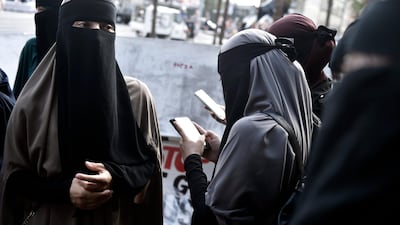Denmark plans to classify Muslim immigrants and their children separately in official statistics, including in crime and employment.
Danish Immigration and Integration Minister Mattias Tesfaye voiced support for the statistical separation of people with Middle East and North African heritage, and those from Pakistan and Turkey.
Mr Tesfaye insisted it was helpful to categorise people by region to gain more understanding of crime in the Scandinavian country.
"We need more honest numbers and I think it will benefit and qualify the integration debate if we get these figures out in the open," he told Danish newspaper Berlingske.
"Because, fundamentally, they show that we in Denmark don’t really have problems with people from Latin America and the Far East.
"We have problems with people from the Middle East and North Africa."
Some ministers supported the comments but others found them divisive and incendiary.
About 4.4 per cent of Denmark's population are Muslim, a January analysis shows.
Denmark differentiates between people of western and non-western heritage in its official immigration statistics.
Denmark considers the EU, Andorra, Australia, Canada, Iceland, Liechtenstein, Monaco, New Zealand, Norway, San Marino, Switzerland, the UK, the US and the Vatican, as western.
When Danish officials looked at their crime statistics, they found that young men from Mena countries, Pakistan and Turkey were more likely to commit crimes than those from other non-western countries.
They also found that people from those countries were more likely to be unemployed.
In 2018, 4.6 per cent of young men from one of those countries country were convicted.
For young men in the other non-western countries, it was 1.8 per cent.
Danish government statistics found that women with heritage in Mena countries, Pakistan and Turkey had an employment rate of 41.9 per cent in 2018, compared with 61.6 per cent for women from other non-western countries, such as Thailand and Vietnam.
"These new figures will provide a more honest political discussion about the minority of immigrants who create very great challenges for our society," Mr Tesfaye said.
In August 2018, Denmark brought in a controversial "burqa ban", which led to hundreds of Muslim women protesting in cities across the country.

